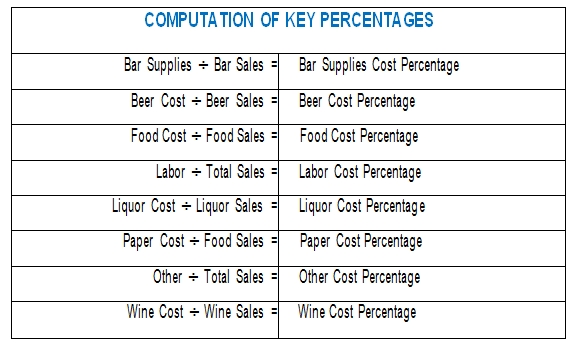 Coin-operated entertainment machines are a great source of extra revenue for a bar. The eclectic nature of most bars means that coin-ops of all styles, sizes, and functions can fit perfectly within your surrounds while adding to the fun and flavor of your establishment. The profits that coin-ops generate can be huge; they can also run a lot deeper than just the money inserted into the machines.
Coin-operated entertainment machines are a great source of extra revenue for a bar. The eclectic nature of most bars means that coin-ops of all styles, sizes, and functions can fit perfectly within your surrounds while adding to the fun and flavor of your establishment. The profits that coin-ops generate can be huge; they can also run a lot deeper than just the money inserted into the machines.
Coin-ops increase traffic, generate great repeat business, and keep people in your venue far longer. Coin-ops also give people who arrive alone a chance to do something as they sip their drinks. From high-tech games to virtual reality to pool tables, anything that gives your customers added entertainment is a good option, especially if it will bring you higher profits. These machines are cheaper than renovations but can contribute nicely to your profits.
- Profit-based coin-ops. Some coin-ops don't have to cost you a cent, but they can bring in a good source of revenue. Simply open the phone book and look under "Coin-operated" and you'll find a slew of companies that will bring you games and entertainment for your customers for no charge—other than a share of the profits. This kind of a deal can only be good for your business. No maintenance worries and you get a new machine whenever an old one stops earning money—all free of charge.
- Deal directly with the machine manufacturers. In a scenario like this, your venue will handle most of the daily maintenance required of the machines and the manufacturer's repairperson comes out only as needed. While this limits your selection of game alternatives, when you want to switch games, it's only a matter of changing a couple of computer chips. The actual game casing stays the same, but a completely different game appears, keeping your customers from getting bored with their options.
- Don't forget change machines. If you are going to offer coin-ops, make it easy for your customers to use the machines without taxing your staff too heavily for change. One change machines is all that is needed.
- Responsibility. If the machine is on your premises, take responsibility for it and either return the customer's money or see to it that your supplier can fix the malfunctioning machine A.S.A.P. There's nothing worse than wanting to play a machine and finding it switched off— again.
- Photo-machines. Customers put up to five dollars into the machine and step in to have their photo taken. In a few minutes, they can have their image on stickers or postcards; they can even pick a background. These machines are huge moneymakers and can even incorporate an ad for your bar within the picture. Your local phone directory will list plenty of suppliers.
- Lottery machines. If your state allows them, they can be a great source of revenue. The latest machines work much like slot machines in Las Vegas, allowing customers the chance to win big.
- Retro arcade machines and video game machines are very popular and go well with bars. Many people love these games and gladly spend extra time at a bar in order to play them.
- Dancing machines. Patrons throw a dollar into the machine and step onto a stage that features a series of lights. They then try to step on whichever lights flash to keep in time with an on-screen dancer. These machines can be very addictive and often draw a large crowd—which can't hurt your bar's takings. Again, any amusement machine vendor in your local phone directory should be able to supply this machine.
- Virtual reality (VR) sports are becoming a reality. More and more bars are installing VR golf ranges, VR batting cages, VR racing games, VR bowling alleys, VR hockey games, and VR boxing machines. These machines are the same as any other coin-operated gaming machine, except they cost the customer more and deliver a superior product. While they take up more room, they give you far greater profitability and extensive replay value.
Coin-operated games come in many varieties. Just about any game you can think of has a coin-op version available. Football, air hockey, video games, shooting games, skee-ball, basketball games, even video poker and blackjack machines that fit into your bar-top—it's all available and it's all going to bring in a newer, younger customer for a minimum investment or no investment at all.
And let's not forget the old stalwarts--pinball and darts. Going old school nowadays can seem fresh and new. Retro is in:
Pinball Machines
 The trusty pinball machine has been around since the late 1800s yet still uses the same formula as the pinball machines of old. Lights, sound effects, the bounce of the ball, the sound of the flipper, and the lure of a high score. With a little smart thinking, your pinball machines can earn you a lot of money.
The trusty pinball machine has been around since the late 1800s yet still uses the same formula as the pinball machines of old. Lights, sound effects, the bounce of the ball, the sound of the flipper, and the lure of a high score. With a little smart thinking, your pinball machines can earn you a lot of money.
- Install a pinball machine in your waiting area. If you keep the noise levels down so nearby customers don't get annoyed, they can be a great moneymaker. Vendors can bring you the latest pinball machines for free and will split all profits with you at the end of the month. At 50 cents a game, a machine only needs to be played ten times a day to bring you $75 a month in profit sharing. Not a bad return on zero investment!
- Vintage machines. Invest in a vintage pinball machine rather than getting a coin-op company to bring in a high-tech modern machine on which you'll have to split your profits. Older machines cost far less to buy and a lot less to maintain, and the appeal of an old machine will bring back memories for your older patrons. Machines such as these can be purchased through online auctions such as eBay (www.ebay. com).
- Outright purchase. If you choose to purchase your own pinball machines, look in the classified ads in the newspaper or at local auctions for the best deal. Of course, purchasing your own machine will mean you're responsible for its maintenance, so look for a machine that either comes with an array of spare parts or that has been fully serviced recently. The older the machine, the tougher it becomes to track down spare parts when the time comes to repair them.
Darts
Long a bar game institution, the old dartboard has become high-tech.
 New technology. Look at what's available on the market today. The dartboard has received a technological boost. Coin-operated dart systems not only keep score for your patrons, but they also bring in a new source of revenue. Turnkey systems can be purchased or brought in under a profit-sharing deal.
New technology. Look at what's available on the market today. The dartboard has received a technological boost. Coin-operated dart systems not only keep score for your patrons, but they also bring in a new source of revenue. Turnkey systems can be purchased or brought in under a profit-sharing deal.
- Dedicated area. Even if you can't be bothered with a coin-op version of darts, it still pays to set aside an area for a dartboard. Tournaments and leagues can bring in a steady flow of new customers.
This article is an excerpt from the The Professional Bar & Beverage Managers Handbook: How to Open and Operate a Financially Successful Bar, Tavern and Nightclub, authored by Douglas Robert Brown, published by Atlantic Publishing Group. This excerpt has been reprinted with permission of the publisher. To purchase this book go to:


 At the end of each month, it is important to close out all expenses and sales and balance all accounts. This process ensures that finances are being monitored and helps prevent financial problems down the line. It also lets you, the bar manager, see whether the bar is making a profit or not and what changes (if any) need to be made to operations.
At the end of each month, it is important to close out all expenses and sales and balance all accounts. This process ensures that finances are being monitored and helps prevent financial problems down the line. It also lets you, the bar manager, see whether the bar is making a profit or not and what changes (if any) need to be made to operations.
 New bar managers, especially those who have never owned a business before, often find the process of caring for money matters quite daunting. There are a number of ways to make the process easier:
New bar managers, especially those who have never owned a business before, often find the process of caring for money matters quite daunting. There are a number of ways to make the process easier:
